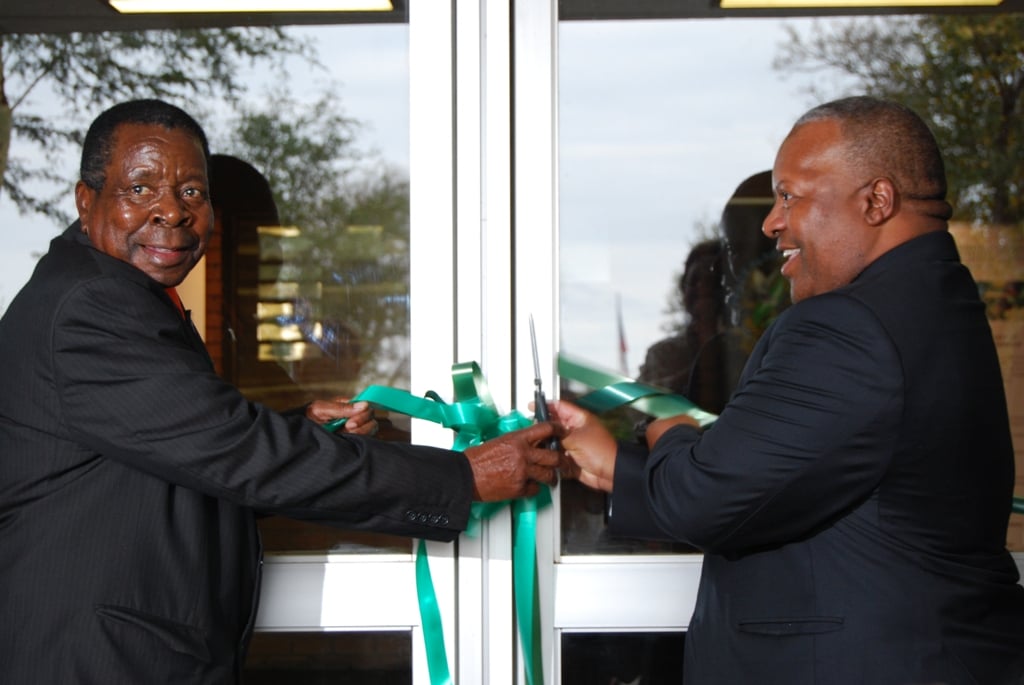Posted on September 01, 2010
The Hans Hoheisen Wildlife Research Station is located in the Kruger National Park close to the Orpen Camp. The Station was opened on 25 August 2010 following completion of the first phase of refurbishment and upgrading of its existing structures and services. The work was made possible through Peace Park Foundation-facilitated funding obtained from the Hans Hoheisen Charitable Trust, Alexander Forbes, Foundation Hoffmann, and the Turner Foundation. Substantial IT infrastructure was also provided, in kind, by ADC Telecommunications.
The Research Station, purpose-built on a portion of land donated by the late Mr Hans Hoheisen, was first managed by the then Transvaal Provincial Administration, then the Limpopo Provincial Government, and currently by the Mpumalanga Tourism and Parks Agency (MTPA). Because of a lack of funding the Station fell into disuse and disrepair from the early 1990s onward. After almost a decade of negotiations, first with the Limpopo Province, and then with the MTPA, a tripartite Memorandum of Understanding (MoU) was signed on 22 June 2009 by the University of Pretoria, the Peace Parks Foundation, and the MTPA
In the MoU it was agreed that the Station would be refurbished and developed as a research platform where the research activities will focus on integrated veterinary aspects of the increased disease risks created by the development of trans-frontier conservation areas (in this case the Greater Limpopo Transfrontier Park). This research platform will allow national and international researchers from tertiary educational and research institutions to conduct focused research on the dynamics and drivers of animal diseases at the interface between wildlife, livestock, humans, and within the context of environmental health.
The oversight of activities at the Station is the responsibility of an Advisory Committee constituted under the MoU, and supported by a number of working groups. The day-to-day operational activities of the Station are managed by the Centre for Veterinary Wildlife Studies of the Faculty of the Veterinary Science at Onderstepoort, who developed its business and management plans
The fully functional Station will provide laboratories of international standard in addition to animal holding facilities that will allow animal experimentation, in a safe environment, with serious economical animal diseases that are important at the interface. The first phase of refurbishment focused mainly on refurbishment and upgrades of the laboratory complex, research accommodation, and services. The Station now has four laboratories, offices, storage space, a library, and IT facilities as well as ten self-catering accommodation units for researchers and students. There is also a ninety-seat auditorium suited for offering symposia and conducting workshops. During future phases of the develop quarantine animal holding facilities will be create, the services required to deal with infectious agents will be completed, and additional accommodation for visiting researchers created.
The Station is close to the Faculty’s Mnisi Community Engagement Programme and the Hluvukani Animal Health Centre, where research and services focus on the dynamics and effects of animal disease in a community at a wildlife interface. It is also close to a number of private and provincial reserves and other rural communities, providing unique opportunities to conduct research within the context of the One-Health philosophy.
For further information contact Dr Richard Burroughs ([email protected]) or Dr Louis van Schalkwyk ([email protected]) of the Centre for Veterinary Wildlife Studies
Below: Chief Mnisi of the Mnisi Traditional Authority (left) and Mr Jabu Mahlangu, MEC for Economic Development, Environment and Tourism in Mpumalanga officially open the Hans Hoheisen Wildlife Research Station.

Copyright © University of Pretoria 2025. All rights reserved.
Get Social With Us
Download the UP Mobile App